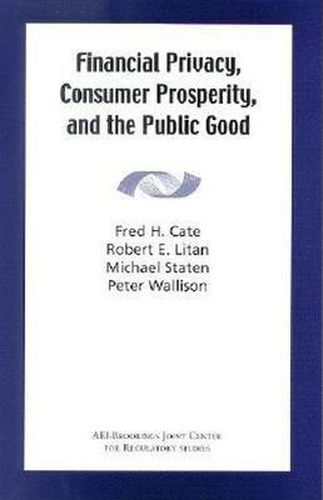Readings Newsletter
Become a Readings Member to make your shopping experience even easier.
Sign in or sign up for free!
You’re not far away from qualifying for FREE standard shipping within Australia
You’ve qualified for FREE standard shipping within Australia
The cart is loading…






American consumers have become accustomed to obtaining instant credit, which is possible only because credit bureau allow quick verification of the creditworthiness of borrowers. In order to work, however, this process requires credit bureau to have access to sensitive financial information about individuals, compiled largely without their consent. In 1996, Congress amended the Fair Credit Reporting Act (FCRA) to allow credit bureaus to continue these practices, superseding state laws that might have obstructed them. With the expiration of these amendments in 2004, many states are suggesting that new amendments to the FCRA allow them to impose their own restrictions on the use and content of credit reports. This report examines the debate surrounding the role of the states in regulating credit bureau. How this controversy is resolved will have an important bearing on the operation of credit markets and financial privacy in the future. The authors make the case for continued federal preemption of the states in this area. Without it, the authors argue, the consumer credit system that has developed in the US will be put in jeopardy.
$9.00 standard shipping within Australia
FREE standard shipping within Australia for orders over $100.00
Express & International shipping calculated at checkout
American consumers have become accustomed to obtaining instant credit, which is possible only because credit bureau allow quick verification of the creditworthiness of borrowers. In order to work, however, this process requires credit bureau to have access to sensitive financial information about individuals, compiled largely without their consent. In 1996, Congress amended the Fair Credit Reporting Act (FCRA) to allow credit bureaus to continue these practices, superseding state laws that might have obstructed them. With the expiration of these amendments in 2004, many states are suggesting that new amendments to the FCRA allow them to impose their own restrictions on the use and content of credit reports. This report examines the debate surrounding the role of the states in regulating credit bureau. How this controversy is resolved will have an important bearing on the operation of credit markets and financial privacy in the future. The authors make the case for continued federal preemption of the states in this area. Without it, the authors argue, the consumer credit system that has developed in the US will be put in jeopardy.